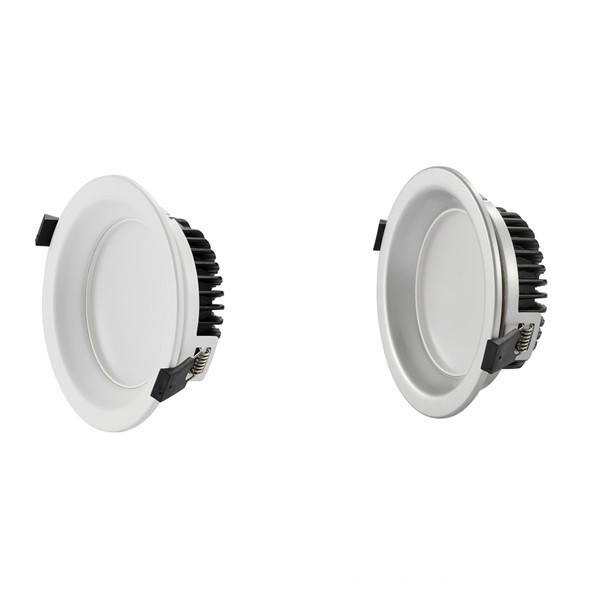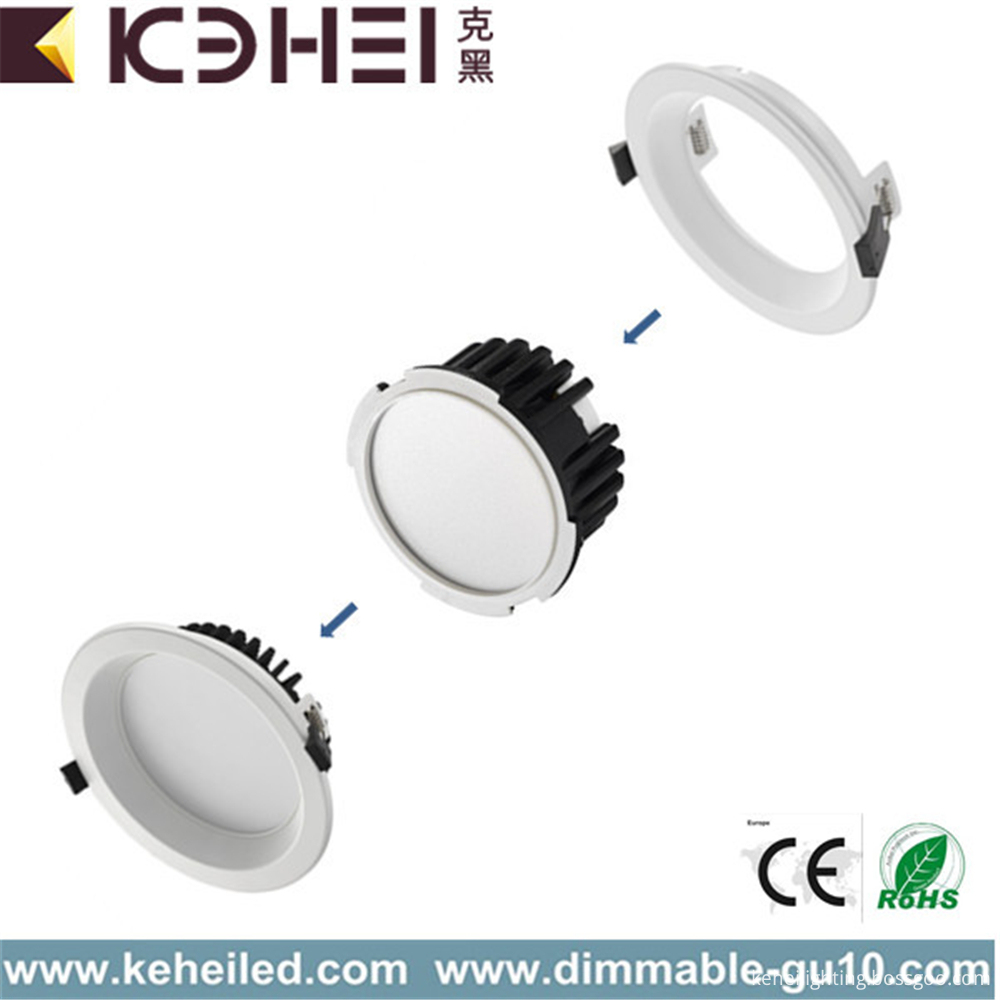GPS chip solution analysis
Speaking of the main key technology of GPS chips, this includes responsible for signal processing-baseband (Baseband) and receiving signals-radio frequency (RF). Because the GPS signal frequency (1,575.42MHz) comes from an altitude of 20,000 kilometers above the ground, the signal is very unstable, so after the antenna receives the signal, it goes through a series of signal amplification, noise filtering, frequency reduction, sampling and other processes (RF front end), After passing through RF, the signal enters the baseband processing part, and the digital signal sampled in the previous stage is calculated and output for user interface use. The GPS Baseband DSP chip is the core component, which is responsible for the processing of the address signal.
Based on the above, the two parts of radio frequency and fundamental frequency include: microprocessor (Micro processor), low noise amplifier (Low Noise Amplifier; LNA), digital part (Digital SecTIon) RF part (RF SecTIon), antenna (Antenna Element), I / O drivers (GPIO and Drivers), and microprocessor peripheral circuits (Processor peripherals) and other important components.
The integration of various GPS chip solutions on the market makes the GPS chip market facing great variables. The first is "miniaturization", reviewing the development history of GPS chips in recent years. With the successive integration of GPS and other products, and emphasizing that the volume of terminal products emphasizes lightness, thinness and shortness, it is an inevitable trend that GPS chips move toward system single chip. At present, the manufacturer's approach to GPS single chip can be divided into a single chip of radio frequency or base frequency, and more functions are integrated.
In the radio frequency chip part, many manufacturers have integrated amplifiers, filters, downconverters, frequency synthesizers and oscillators on one chip; in the base frequency part, they have integrated CPU, memory (DRAM, SRAM, Flash), Power Manager, Clock, etc.
Therefore, we see that the size of GPS chips is gradually shrinking, and that GPS chips have evolved from dual modules to single chips. In the future, GPS equipment products will be more and more vigorous, and chip demand will be increasing. In addition, GPS chips will also face customized requirements. In the past, GPS chips were mostly used in the automotive market. At present, GPS chip applications are used in mobile phones and PDAs, or special personal portable devices, such as trackers for the elderly and children. The GPS chip may also be integrated with other functions, such as Bluetooth and USB. Therefore, there will be more and more customized modules designed for special applications.
At present, most foreign manufacturers are investing in GPS chip development, such as: SiRF, TI, Xemics, Freescale, STM and other major manufacturers have launched GPS chips. Among them, SiRF is the world's largest GPS chip manufacturer, and the product line is quite complete and can provide A full range of solution products. This article will introduce a number of chips that are more commonly used in the GPS market, and provide a complete product analysis for its characteristics and architecture.
SiRF: starII LP
SiRF starII LP is a high-sensitivity GPS chip solution. The range of powerful GPS functions that can be used includes: handheld device products, automotive, marine and AVL applications. If paired with high-performance GPS software, it can enable mobile consumer devices Can be used continuously in any place for a long time. SiRF starII is currently one of the world's most power-efficient chip products, which can receive 12 satellites at the same time, in line with NMEA 0183 (v3.0) agreement.
. Model: SiRF starII LP
. Sensitivity: -159dBm
. Features: Low power consumption, high efficiency, in line with NMEA 0183 (3.0)
. Size: 28mm × 30mm × 5mm
. Accuracy: PosiTIon: 15 ~ 20m
. Working voltage: 3.0V
. Receiving channel: 12 satellite channels
SiRF: starIII
It has a 140-pin GPS signal processor and also contains a 50MHz ARM7TDMI processor, which allows OEMs to integrate multiple application functions. Since GSC3f integrates 4 million bits of flash memory, no other components are needed, so it can simplify the related circuit design from the GPS receiver to the circuit board.
In addition, SiRFstarIII also provides the TTFF quick first-time positioning function, and takes up about 20% less hardware space than SiRF. It also saves power compared to the previous generation SiRFstarII. In addition to the application of car navigation and handheld devices, other special applications such as : Ultra-small mobile phones, smart devices with limited power or digital cameras.
. Model: SiRF starIII
. Sensitivity: -159dBm
. Features: power saving, simplified circuit design. Size: 27.9mm × 20mm × 2.9mm
. Accuracy: Position: 10 ~ 20m
. Working voltage: 3.3V
. Receiving channel: 20 satellite channels
Sony: CXD2951
CXD2951 is designed with Sony's advanced RFCMOS occlusion signal processing method, which has high sensitivity, minimum power consumption and high performance. And with a micro GPS module with footprint of 14 × 23 × 1.8mm, passive antenna integrated GPS module, the new LSI configuration verified by QS9000 / TS16949 and other automobiles is ideal for a large range of location-based applications, such as: automobiles, handheld devices, navigation , Fleet management, and mobile computer processing technology equipment.
. Model: CXD2951
. Sensitivity: -152dBm
. Features: Short start response time and power saving. Size: 14mm × 23mm × 1.8mm
. Accuracy: Position: 5 ~ 15m
. Working voltage: 3.3V
. Receiving channel: 12 satellite channels
Nemerix: NJ1006 + NJ1030
As far as today's technology is concerned, the most successful GPS receiver uses two chips. Although products that use a single chip (single-chip circuit) also exist, their performance cannot match that of products that currently use a dual chip. NemeriX takes full advantage of SiGe (silicon germanium) technology and uses a combination of standard CMOS technology for dual-die solutions. In typical applications, the receiver and processor can be used in conjunction with dedicated system software.
. Model: NJ1006 (RF) + NJ1030 (Baseband)
. Sensitivity: -152dBm
. Features: Low noise amplifier, voltage controlled oscillator and antenna detector. Size: NA
. Accuracy: Position: 10 ~ 15m
. Working voltage: 2.2V
. Channel: 10 satellite channels
U-Nav: uN9018
u-Nav launched low-cost, high-performance GPS receiver solution uN9018, which includes uN1008 CMOS RF front-end and highly integrated uN8130 baseband processor. The product consumes less than 55mW under continuous GPS navigation and is suitable for low-power, battery-powered portable wireless applications.
uN9018 is a solution with multi-mode GPS software, which supports automatic, semi-automatic, and Single Fix (A-GPS) modes. In Single Fix mode, it surpasses the 3GPP2 and 3GPP standards of mobile phones and can simultaneously receive GPS and mobile phone voices. And data signals, with an on-chip frequency synthesizer supporting multiple reference frequencies, allowing mobile phone or PDA manufacturers to use on-board oscillators to save costs and reduce size
. Model: uN9018
. Sensitivity: -156dBm
. Features: Receive mobile phone voice and data signals. Size: NA
. Accuracy: Position: 10 ~ 20m
. Working voltage: 2.2 ~ 5.5V
. Channel: 8 satellite channels
RFMD: RF8900
Bluetooth / GPS solution RF8900, the design integrates Bluetooth communication and GPS technology in a complete system. Compared with similar products, this product is said to reduce the size by 20% and the cost by 25%. RF8900 is a highly integrated system solution. It integrates Bluetooth wireless technology and GPS navigation technology and also has a very high signal sensitivity (-155dBm). Its sensitivity is increased by 5dBm compared with other products, so RF8900 tracks GPS signals. The capability reaches -155dBm, and the location update rate reaches 1 second.
This high sensitivity allows end users to locate themselves at any location, including areas where indoor and outdoor GPS signals are weak, attenuated, or blocked (such as trees, high-rise buildings, and mountains). This unique solution also provides users with a reference design, including software, filtering, memory, reference frequency and antenna, for all accessories for a complete Bluetooth GPS system.
. Model: RF8900
. Sensitivity: -155dBm
. Features: Integrated Bluetooth communications. Size: 32mm × 32mm × 8.9mm
. Accuracy: Position: 10 ~ 15m
. Working voltage: 3.0V
. Channel: 8 satellite channels
Xemics: XE1202
XE1202 transmitter receiver chip, the biggest feature of this chip is "power saving". Although it can only receive 8 satellites at the same time, for car navigation purposes, the full-function transceiver chip is absolutely no problem in terms of accuracy. Its series group is XE1202, XE1202HE1, XE1202LE1.
Its functions are as follows: 433/868 / 915MHZ three international ISM band coverage, high sensitivity -113dBm, low power consumption, can meet the requirements of low power consumption equipment, low operating voltage 2.7V, FSK modulation, maximum transmit power + 5dBm, with More channels, programmable frequency settings, especially for special occasions requiring multi-channel work, high integration, few peripheral components, basically no debugging, high rate transmission speed of 76.8kbit \ s, due to the use of low transmission power , High receiving sensitivity design.
. Model: XE1202
. Sensitivity: -143dBm
. Features: 433/868 / 915MHZ three international ISM bands. Size: 29mm × 48mm × 16mm
. Accuracy: Position: 10 ~ 15m
. Working voltage: 2.7 ~ 3.6V
. Channel: 8 satellite channels Wangjiu Technology: PL6313
Wangjiu Technology launched the GPS PL6313 chipset, which provides a high-performance, low power consumption and low additional cost solution for mobile computing platforms that require satellite positioning and tracking, such as PDA, Tablet PC and Smart Phone.
The main design requirements of the PL6313 chipset are low power consumption, small size, and reduced increase cost of the system embedded GPS function. When embedded in the computing platform, the existing navigation and memory are used directly to complete the GPS navigation operation, so as to reduce the cost. It can be used to capture and track GPS signals and generate initial measurement values.
. Model: PL6313
. Sensitivity: -150dBm
. Features: Low price, technical support from local manufacturers. Size: 10mm × 10mm × 0.8mm
. Accuracy: Position: 5 ~ 15m
. Working voltage: 3.3V
. Channel: 12 satellite channels
Magic 4 Inch LED Downlights can be detachable in two parts. One 12W/15W module, and 4 Inch size rings.
1. 4 Inch LED Downlights long life up to 25000Hrs.
2. 4 Inch Led Downlights can save 80% energy
3. Color temperature of 4 Inch LED Downlights: warm white, nature white, cool white.
4. Rate voltage of 4 Inch LED Downlights: AC100-240V.
5. Frequency of 4 Inch LED Downlights: 50HZ.
6. 4 Inch LED Downlights with 2 years Warranty.
7. Dimmable & CCT Changeable Downlight can be abvailable.
8. White, black, silver color for option.


4 Inch LED Downlights
4 Inch LED Downlights,White 4 Inch LED Downlights,4 Inch Recessed LED Downlight,4 Inch Square LED Downlights
SHENZHEN KEHEI LIGHTING TECHNOLOGY CO.LTD , https://www.keheiled.com